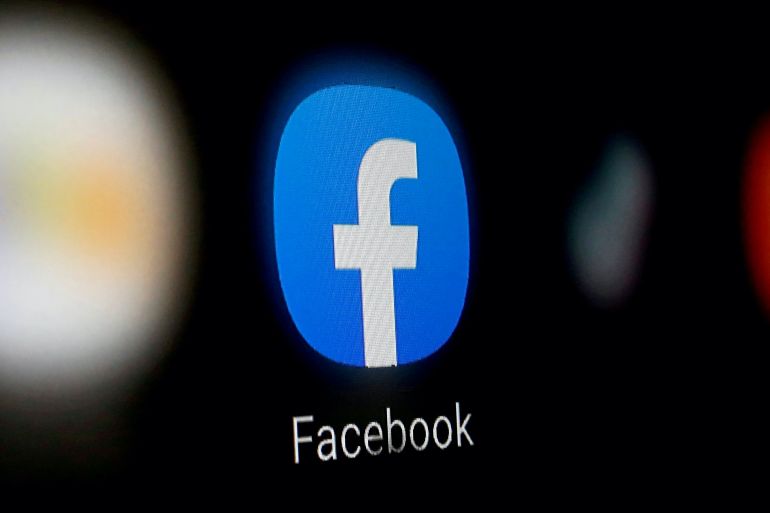Facebook allows posts urging violence against invading Russians
Tech giant says will not allow credible threats against civilians but Russia demands US stop company’s ‘extremist activities’.

Meta Platforms, the parent company of Facebook and Instagram, has temporarily eased its policy on violent speech following Russia’s invasion of Ukraine, saying it will allow statements such as “death to Russian invaders” but not credible threats against civilians.
The policy decision was met immediately with controversy, with Russia’s embassy in the United States demanding on Friday that Washington stop the “extremist activities” of the Facebook owner.
Keep reading
list of 4 itemsRussia seizes more ground in Ukraine’s east as Kyiv’s forces await supplies
Russia ramps up weapons production for Ukraine war
Russia-Ukraine war: List of key events, day 797
“Meta’s aggressive and criminal policy leading to incitement of hatred and hostility towards Russians is outrageous,” the embassy said in a statement. “The company’s actions are yet another evidence of the information war without rules declared on our country.”
The tech giant, however, defended its policy decision.
“As a result of the Russian invasion of Ukraine, we have temporarily made allowances for forms of political expression that would normally violate our rules like violent speech such as ‘death to the Russian invaders,'” it in a statement.
“We still won’t allow credible calls for violence against Russian civilians,” it added.
Meta’s statement followed a report by Reuters news agency that said the policy applies to Armenia, Azerbaijan, Estonia, Georgia, Hungary, Latvia, Lithuania, Poland, Romania, Russia, Slovakia and Ukraine, citing the firm’s emails to its content moderators.
The firm did not reply to a request seeking confirmation of the policy’s geographic boundaries.
Meta, which counts billions of users globally across its platforms, has previously struggled with what it would allow people to post in moments of upheaval.
In July 2021, the firm temporarily allowed posts calling for “death to Khamenei”, referring to Iran’s Supreme Leader Ali Hosseini Khamenei, during protests that rocked the country.
Tech platforms have had to navigate a slew of thorny issues related to the war in Ukraine, such as when US Senator Lindsey Graham called for the assassination of Russian President Vladimir Putin in a televised interview and on Twitter.
“The only way this ends is for somebody in Russia to take this guy out,” says Graham’s tweet from March 3, which Twitter has not taken down.
Is there a Brutus in Russia? Is there a more successful Colonel Stauffenberg in the Russian military?
The only way this ends is for somebody in Russia to take this guy out.
You would be doing your country – and the world – a great service.
— Lindsey Graham (@LindseyGrahamSC) March 4, 2022
Meta’s decision drew sharply contrasting views.
“The policy regards calls for violence against Russian soldiers,” said Emerson Brooking, a disinformation expert at the Atlantic Council’s Digital Forensic Research Lab.
“A call for violence here, by the way, is also a call for resistance because Ukrainians resist a violent invasion,” he added.
But some expressed deep concerns, including Lehigh University professor Jeremy Littau, who wrote on Twitter: “‘We don’t allow hate speech except against certain people from a certain country’ is one hell of a can of worms.”
“We don’t allow hate speech except against certain people from a certain country” is one hell of a can of worms.
— Jeremy Littau (@JeremyLittau) March 10, 2022
Facebook and other US tech giants have moved to penalise Russia for the invasion of Ukraine. Apple and Microsoft have announced they are halting the sale of their products in Russia, while other companies have made public their “pauses” of certain business activities or ties.
Last week, US internet service provider Cogent Communications said it had “terminated its contracts with customers billing out of Russia”.
Russia, meanwhile, has also taken steps to block access to the Facebook network, joining the very small club of countries barring the largest social network in the world, along with China and North Korea.
Russian authorities have also tightened their grip on critical media, though press freedoms in the country were already rapidly waning.
Moscow blocked Facebook and restricted Twitter the same day last week that it backed the imposition of jail terms on media publishing “false information” about the military.
The war is running parallel with a period of a significant crackdown on opposition voices, which has included the arrest of protest leaders and protest participants.